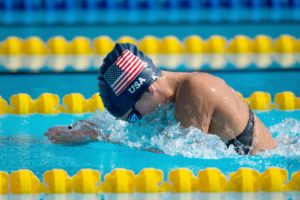An article I recently read on Cal Newport’s Study Hacks blog made me think about how fine-tuning my own learning methods could make my life a little easier. Here, I’m talking about learning methods in the context of preparing for the WELL AP exam, but these ideas could broadly apply to anything you’d want to learn in the future. Below are a few lessons, culled from writings on productivity and the psychology of learning.
-
Improve your technique. The first point is to start by appreciating the importance of technique. Psychologists might use the fancy term “metacognition,” to refer to this kind of “thinking about thinking.” In the context of studying, Newport uses the example of elite swimmers to drive home the point that focusing on technique is critical to producing better results with less effort. It’s the difference between cutting through the water like a blue marlin and doggy paddling to barely keep afloat. Improving study technique may seem obvious in theory, but the challenging part is knowing exactly how to improve.

Photo by EJ Hersom
-
Learn out loud. Many of us know the feeling of going through several pages of a technical book only to wonder what we just read. Newport recommends actively verbalizing, either to a study group or to yourself. In fact, teachers often remark that one of the best ways to learn something is to teach it. In a recent article, Dan Willingham, a research psychologist I knew from the University of Virginia, uses the GPS analogy to explain why active recall works:
“Every time you retrieve information from memory, it becomes a bit easier to find it the next time. That’s why students studying for a test actually remember more if they quiz themselves than if they study as they typically do, by rereading their textbook or notes. That parades the right ideas before the mind, but doesn’t make them stick. In the same way, you won’t learn your way around a city if you always use your GPS, but you will if you work to remember the route you took last time.”

“GPS, you’re turning me into a mindless zombie…”
So verbalize and quiz yourself as you study. For the WELL exam, I’ve written about 450 flash cards that I flip through on the subway or whenever I have a few extra minutes. If I’m studying in public (e.g., at the library), I try to mouth the words in a quiet mumble.
-
Handwrite. At first, I was a little surprised to learn this because I’m a fan of recording everything on the computer. Note-taking on the computer minimizes physical clutter, it’s neater, more organized, and searchable. But the research shows that for learning, handwriting works better. In fact, the ease of recording on a computer is precisely what makes typing less effective. Because handwriting is slower, the brain needs to do more work to summarize and process the information, which leads to better comprehension and retention. To extend this lesson, I like to also draw and diagram an idea whenever possible.
-
Take a walk down Memory Lane. In a previous post, I wrote about learning a list by visually linking objects to one another in a mnemonic string. To extend this technique, link this string to a familiar location using the Method of Loci, an old (but effective) strategy used by Greek and Roman orators to memorize speeches. Visualize a familiar place and associate the items on the list to specific locations in that place. You can recall the individual items by performing a mental walkthrough. If you try this once, you’ll realize how much easier this is compared to rote list memorization. For example, to learn the WELL Precondition features, I started my mental walkthroughs using some thematically-related buildings that I am familiar with: Tado Ando’s Sayamaike Historical Museum (Water), the Boston Food Bank (Nourishment) and Uris Hall (Department of Psychology) at Cornell University (Mind).
References:
If you want to read more about these techniques, you can check out these references:
http://calnewport.com/blog/2007/08/02/the-straight-a-gospels-studying-is-a-technical-skill/
https://www.nytimes.com/2017/05/19/opinion/sunday/you-still-need-your-brain.html
https://www.scientificamerican.com/article/a-learning-secret-don-t-take-notes-with-a-laptop/
https://en.wikipedia.org/wiki/Method_of_loci